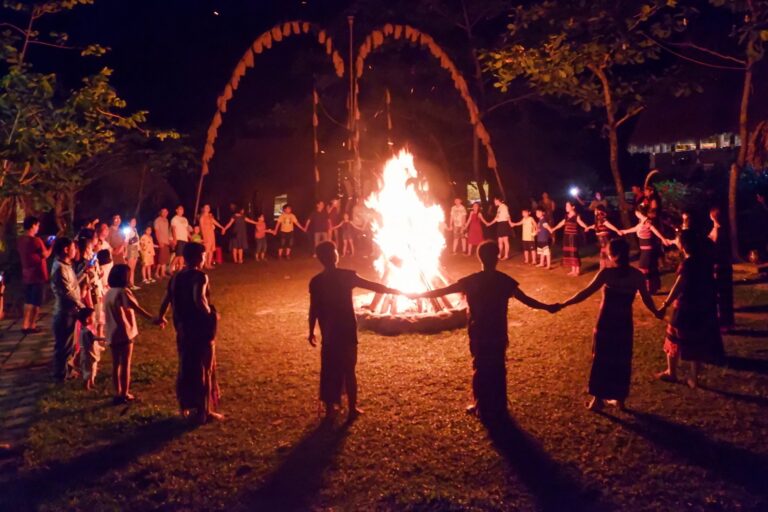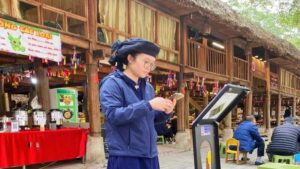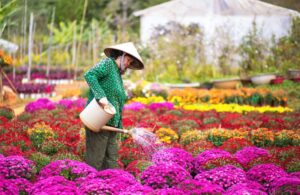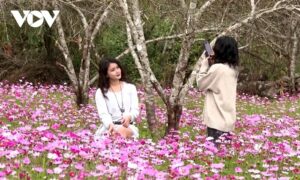A group of reporters from the British Broadcasting Corporation (BBC) are staying in Da Nang from 13 - 18 February to shoot a scientific documentary on the red-shanked douc langurs which live on the Son Tra Peninsula. The purpose of the film is to call on the international community to pay more attention to biodiversity conservation, with a focus on reducing the danger of these rare primates becoming extinct.
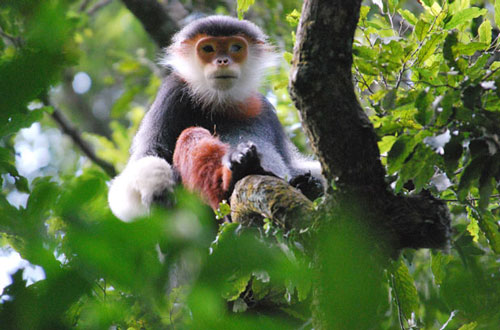
A red-shanked douc langur on the Son Tra Peninsula
Dr Ulrike Streicher PhD, a wildlife veterinarian, has lived in Viet Nam for 15 years and has researched the red-shanked douc langur species in Da Nang for 4 years. She said that the Son Tra Peninsula is the only place in the world where these special animals are found in the wild. However, the Vietnamese people generally, and especially those in Da Nang, have not been fully aware of the value of these rare primates.
Cameraman Mark MacEwen said, surprisingly, that this was the first time that he has filmed and taken photos of wild animals at very close range. He affirmed that virgin forests, including their plants and animals, still remain on the peninsula. He hopes that the documentary will help to increase public awareness of the significance of the langurs, as well as enhance the city’s tourism brand name.
According to international and domestic research, the number of red-shanked douc langurs on the peninsula has been maintained at about 300 ever since 2007, and there were no illegal poaching activities. The British cameraman added that, thanks to the friendly attitude of Da Nang’s citizens towards the environment, a total of 18 families of langurs have peacefully lived there until now.
However, Dr Streicher raised concerns about the langurs’ natural habitats which are expected to be affected by the city’s booming tourism industry. Therefore, she stressed the need for the city’s authorities to enhance ecological conservation in combination with local tourism developments. Special attention should be paid to increasing publicity among local residents about the protection of the Son Tra Peninsula, and enhancing their pride in its charming scenery and high value of biodiversity.
She suggested that the city’s government should impose strict penalties for deforestation, and reward those who actively protect, as well as train dedicated experts in the protection of both forest and langurs. In addition, the focus should be on ensuring a harmonious relationship between the city’s economic development and the integrity of the ecosystem on the peninsula.



